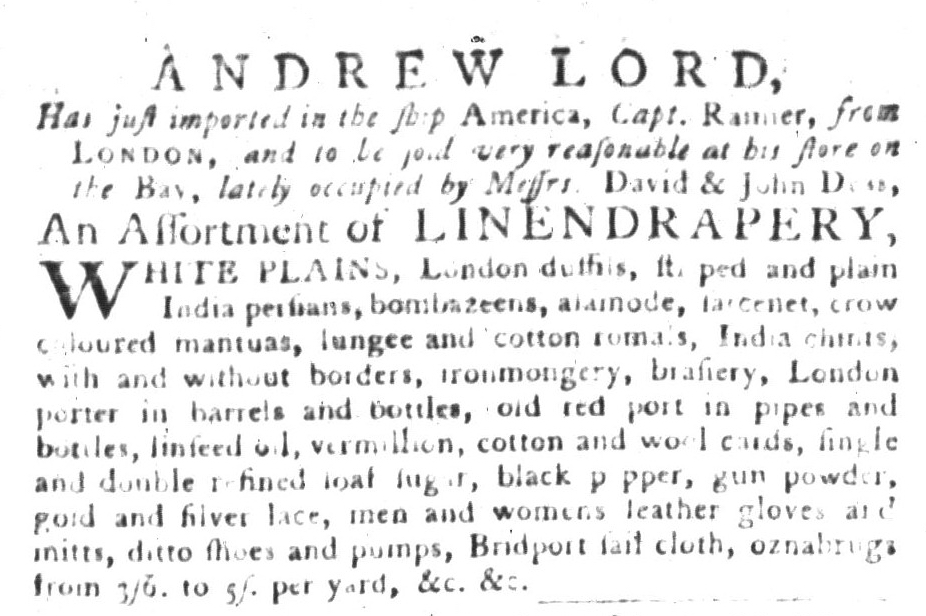What was advertised in a colonial American newspaper 250 years ago today?

“ANDREW LORD, Has just imported …”
In September 1768 Andrew Lord experimented with a marketing strategy deployed by relatively few merchants and shopkeepers prior to the American Revolution. He placed multiple advertisements in a single issue of the South-Carolina Gazette and Country Journal, improving the likelihood that readers would notice at least one of them. For readers and prospective customers who happened to notice both, this further increased Lord’s visibility in the Charleston marketplace, making it difficult to overlook his significance in the local commercial landscape. Publishing multiple advertisements enhanced his name recognition.
Printers frequently crowded newspapers with advertisements for their own goods and services, exercising one of the privileges of operating the press, but merchants, shopkeepers, artisans, and others were slow to follow their lead. Financial considerations certainly played a role. Advertisers not affiliated with the newspaper did, after all, have to pay to have their notices inserted, but that alone does not sufficiently explain their failure to appreciate how to better take advantage of the power of the press in presenting their goods and services to prospective customers. After all, many advertisers made significant investments when they inserted lengthy notices that listed vast arrays of merchandise.

Lord could have done the same. He could have combined his two advertisements into a single advertisement. Doing so would have had the advantage of making his assortment of merchandise seem even more expansive by taking up more space on a single page. Yet he opted for two distinct advertisements instead. Since most printers charged by the length, Lord incurred the same costs whether he published one longer advertisement or two shorter ones. Given the choice, he determined that two shorter notices better suited his purposes. One appeared on the third page of the September 6 edition of the South-Carolina Gazette and Country Journal, the other on the fourth page. This bolstered his presence in the newspaper, further solidifying his reputation as a merchant of note in the bustling port of Charleston. The appeals Lord made in his advertisements did not distinguish him from his competitors, but the reiteration of his name in a single issue did.

